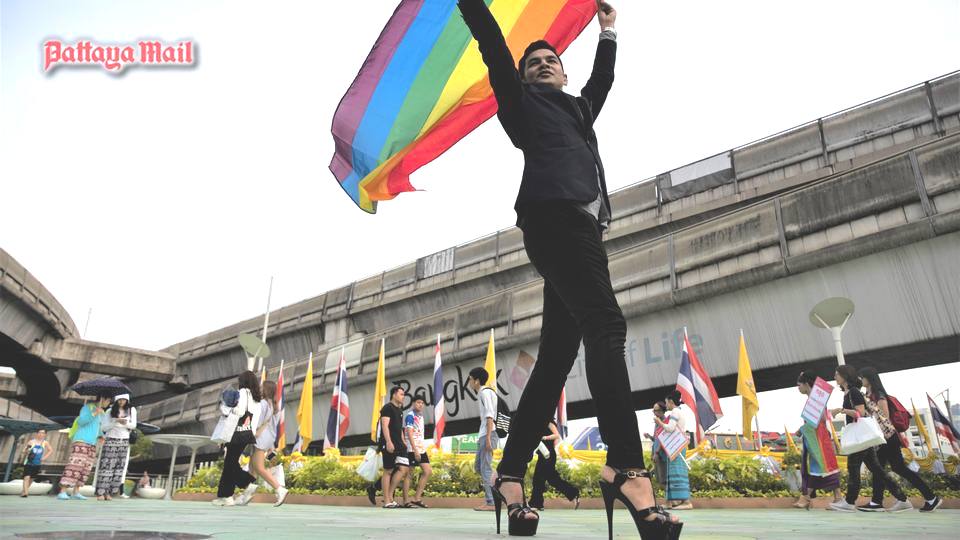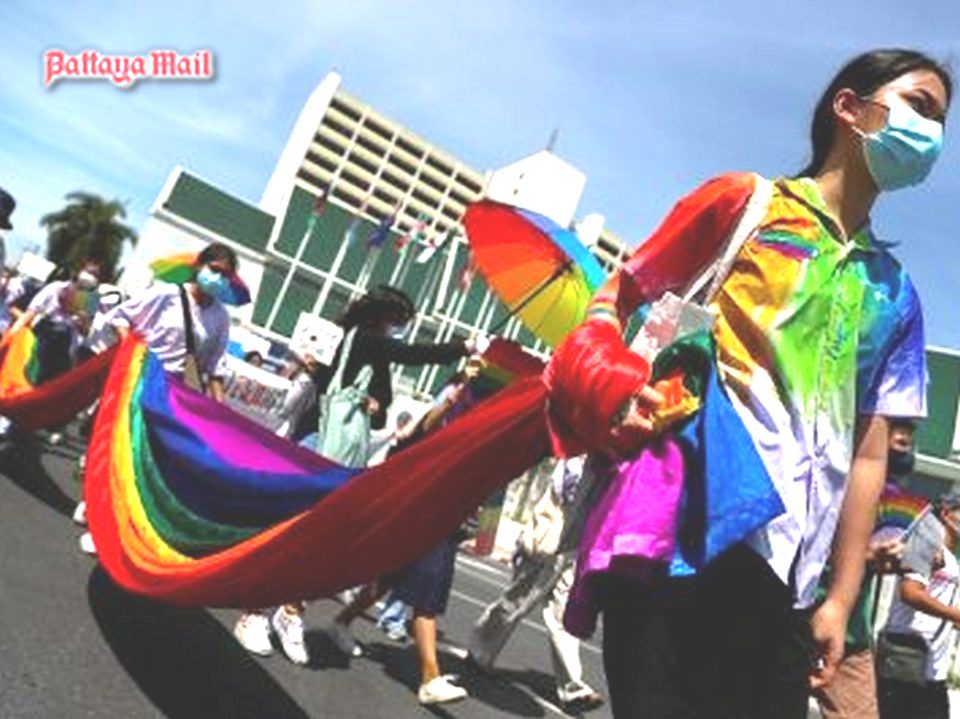
Although a parliamentary bill to legalize same sex unions was approved by the Thai Cabinet last July, procedural delays and spirited opposition are making progress difficult. The bill in its present form would allow the adoption of children for legally-registered couples (at least one of whom must be a Thai national), underpin inheritance rights and allow joint management of property assets.
However, the bill does not recognize actual gay marriage, excludes workers’ welfare and tax deduction rights in employment and does not allow a change of gender from that described on the birth certificate. Constitutional scholars say that a move to full marriage would require detailed changes to the country’s civil code. For example, section 1448 specifically states that marriage must be between a man and a woman. Another problem to be debated is the Gender Equality Act of 2015 which appears to outlaw discrimination on the grounds of sexual orientation, but then permits a whole host of exceptions in religion, education and what is melodiously described as “the public interest”.

Opposition to the expansion of gay rights comes from Muslim communities, particularly in the country’s southernmost provinces, right-wing moralists and parliamentarians who question the need for further legislation. For instance, they object to wholesale reforms unless statistical data is introduced about the size of the issue whilst demanding more public forum meetings to gage sentiment up and down the country.
Nor are LBGT groups in Thailand united in their love of the proposed bill. Some say it does not go far enough. Wachakorn Thanachokvanitchakul, a 30-year old office employee, said many gay people would prefer to wait 10 years for full equality rather than have “fake equality” any time soon. There is also a radical view in some gay quarters that says homosexual people should not be aping the heterosexual lifestyle in any case, stressing that marriage-recognized unions are often a violent and abusive unit in today’s society.
Policy advisor to the Social Development and Human Security Ministry, Ms Chompoonute Nakornthap, said that government whips were still questioning the necessity for the bill and demanding another round of public meetings to be conducted by the Ministry of Justice which is responsible for the bill’s sponsorship. She expressed confidence the bill would eventually become law, hopefully within the calendar year 2021, provided full marriage recognition was omitted from the final version.
If the bill becomes law, Thailand would be only the second country in Asia, after Taiwan, to recognize gay civil unions. Vietnam has decriminalized same sex weddings but not yet introduced full legal recognition. Gay sex is illegal in Malaysia and Brunei and prosecutions with floggings do still occur. Singapore refuses to decriminalize homosexuality although prosecutions are a rarity for consenting adults. In the Philippines, gay sex is legal but there are no protections in public life, such as employment, at national level though some do exist locally. In other words, Asean countries still lag far behind the western world in human rights for sexual minorities.





